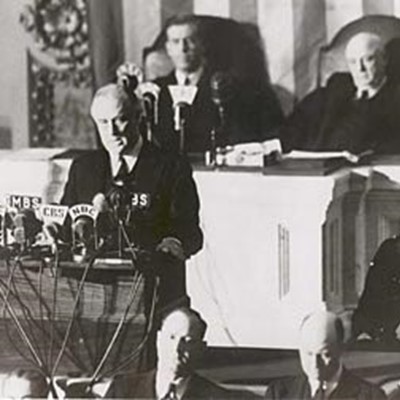
"Character is the primary element that a speaker brings to the stage. Everything else can be learned," writes Reid Buckley. In his book "Strictly Speaking," he looks at the virtues and vices a speaker can project. We’re providing excerpts here in our online magazine.
"In attitude, he is pessimistic, because he is talking to idiots, and idiots will not agree with him."
– Reid Buckley on how audiences read your belligerence
Belligerence
The overly aggressive stage personality can intimidate and anger audiences. A touch of insouciance (lighthearted unconcern) and even pugnacity are desirable, putting the audience on guard, provoking their interest; but spilling over from these desirable attitudes into disdain or outright aggressiveness prejudices opinion.
Traits
An unrelenting and badgering manner, projecting the notion that one is speaking for the good of the audience, who had better damn well listen. The tacit assumption conveyed by the speaker is that he is dead right, everybody else is wrong, which causes him to be gruff, rasping, scornful, sarcastic, irritable, and in an unrelieved state of wrath.
Treatment
Smile. Smile. Smile.
Lighten up the tone. Alter the voice: stop it from booming or growling or rasping. Soften it, honey it. Entreat agreement from the audience...with open hands, as though inviting them all to a wedding.
Stand well back from the lectern, don't crowd it. Neither risk striding stage front, looming over the audience.
Look up three words in the dictionary: the noun humor, the verb to ingratiate, the act of persuasion.
Read James Thurber.
Post a sign on your office door: I fart, therefore I am one.
Repeat three times a day: To err is human; and I, to, am human.
Repeat twice a day, morning and evening: Nobody has ever been absolutely right about anything, not ever, no even me. (Tsk, you should have said I.)
Go to bed reminding yourself: One can lead a horse to water, but one catches more flies with honey.






